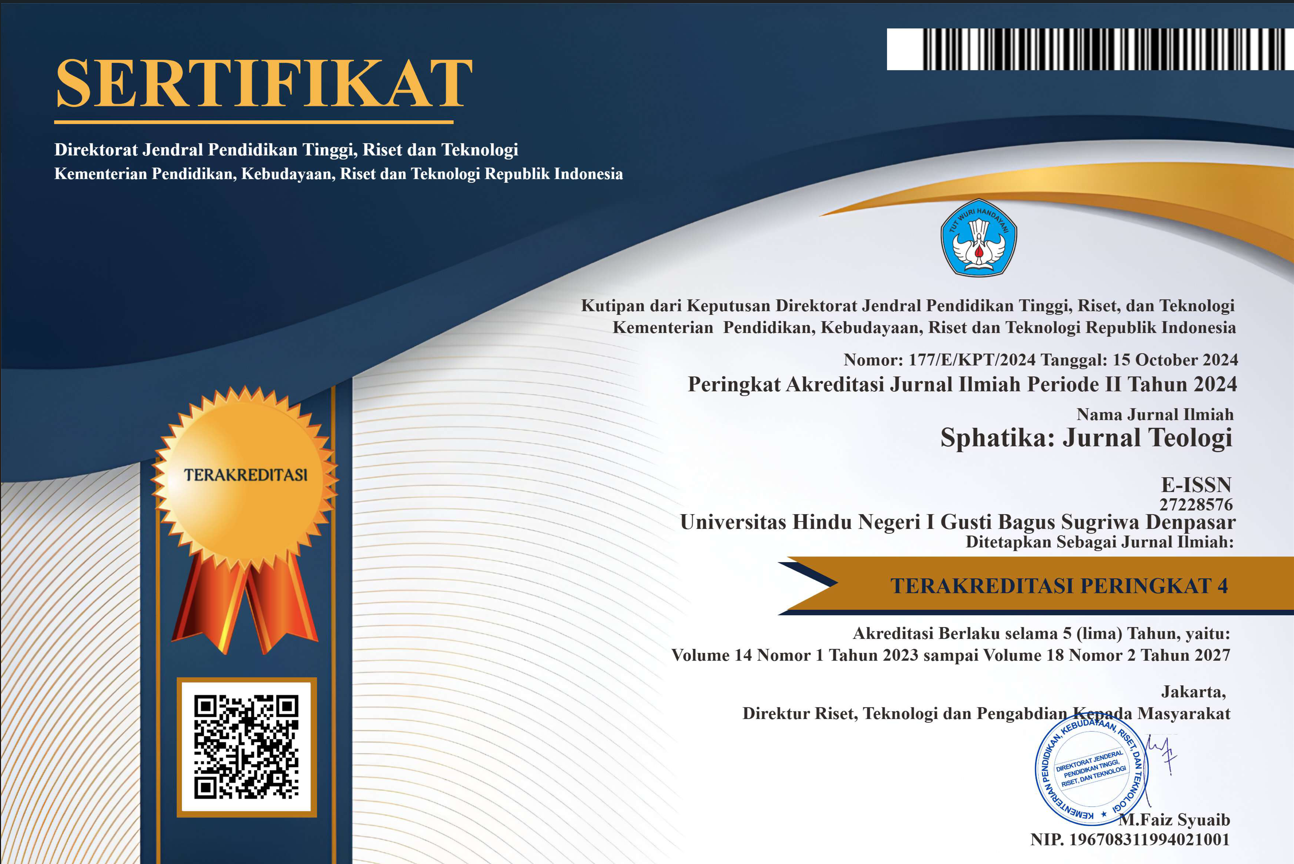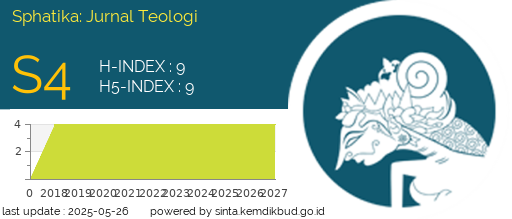Ngurit:
Ritual Awal dalam Tradisi Pertanian Bali untuk Menghormati Bumi dan Kehidupan
DOI:
https://doi.org/10.25078/sphatika.v15i2.4219Keywords:
Ngurit, Ritual, AgricultureAbstract
Traditional Balinese agricultural practices are rooted in the life philosophy of the Hindu community, which emphasizes harmony between humans, nature, and spirituality, aligning with the Tri Hita Karana philosophy. The Subak, Bali's traditional agricultural organization, manages a farming system rich with agricultural rituals. Among these is the Ngurit ritual, a crucial part of the rice cultivation cycle, performed before the planting season to seek blessings from Dewi Śrī and Dewi Pṛthvī for a bountiful crop. Beyond tradition, Ngurit symbolizes respect for nature as a source of life. Amid modernization and global challenges such as climate change and shifts in younger generations' focus, traditional farming practices face significant pressures threatening their continuity. Through a holistic and regenerative approach, Ngurit also offers valuable perspectives on environmental conservation and sustainable agriculture. This article highlights the need to preserve the spiritual and ecological values embedded in traditional Balinese farming practices to ensure the well-being of Bali’s environment and the lives of future generations.
References
Anom, Ida Bagus. 2012. Dharma Pemaculan. Dinas Kebudayaan Provinsi Bali.
Pudja, Gede, and Tjokorda Rai Sudharta. 2004. Manava Dharmasastra (Manu Dharmasastra) Atau Veda Smrti Compedium Hukum Hindu. Surabaya: Paramita.
Radhakrishnan, S. 2008. Upanisad-Upanisad Utama. Surabaya: Paramita.
Sugiyono. 2013. Metode Penelitian Kuantitatif Kualitatif Dan R&D. Bandung: Alfabeta.
Sutawan, Nyoman. 2008. Organisasi Dan Manajemen Subak Di Bali. Denpasar: Pustaka Bali Post.
Tim, Penyusun. 2004. Sri Purana Tattwa. Dinas Kebudayaan Provinsi Bali.
Titib, I. Made. 2003. Teologi & Simbol-Simbol Dalam Agama Hindu. Surabaya: Paramita.
Zoetmulder, P. .. 2011. Kamus Jawa Kuna Indonesia. Jakarta: PT. Gramedia.















